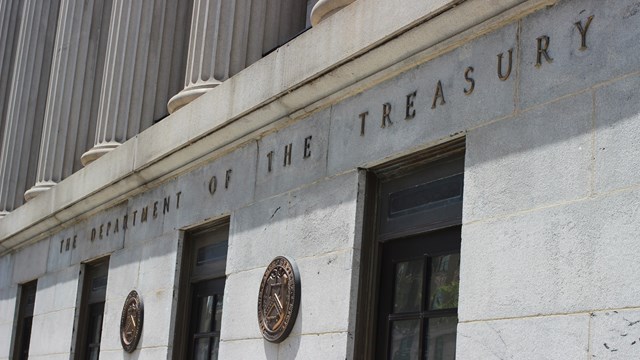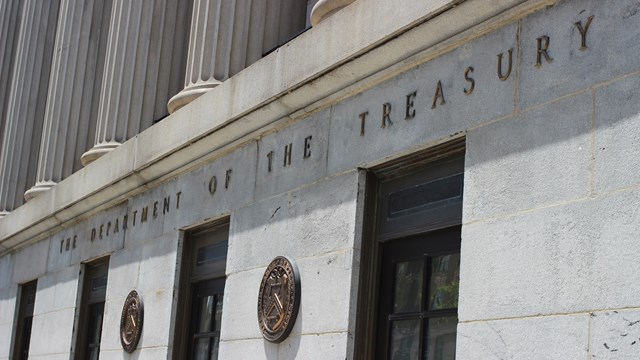
Condo and co-op boards are always looking for ways to save money and one area where some cost-cutting opportunities might be found is in your legal bills. Your building's attorney likely performs many different types of services, works different hours every month and charges a significant hourly rate. With so many factors at play, attorneys who represent HOA boards have suggestions as to where those opportunities for savings exist.
"Each board, or association, is like a small business, and they have the same kinds of problems that small businesses have," says Bruce Cholst of the law firm of Rosen & Livingston in Manhattan. "They have vendor disputes, but they also have internal disputes with shareholders. They have contracts with vendors and professionals. Legal services are really across the board because a building is like a small business."
As such, a little belt-tightening and foresight can lead to lower attorney fees. You just have to know how to go about it.
Getting on a Retainer
Some lawyers say paying your attorney a set annual fee is one way to keep costs under control. Al Pennisi, a partner at the law firm of Pennisi Daniels & Norelli LLP in Rego Park says retainers cover services like writing letters, reading contracts, telephone calls and attending annual meetings, as well as a limited number of other board meetings.
"Usually the attorney will go over and above the retainer," he says of situations that call for the attorney beyond what the retainer covers. "They will charge a lower hourly rate as opposed to those who are working on a case-to-case basis."
Cholst says retainers are a growing option with buildings, and says about a third of the condos and co-ops he represents use one.
"I find, from the lawyer's perspective, that it promotes loyalty and encourages the clients to call us on a regular basis. They're less prone to go years without talking to us and forget about our existence," he says. Another advantage for attorneys is that the building often will hire the same firm for tasks that aren't covered by the retainer, such as litigation.
Cholst says retainers work for boards as well. "From the clients' point of view, I feel it gives them more options than they would otherwise have," he says. "If it's a board that has a very proactive bent and really wants to call the attorney at an early stage… then they can get that proactive advice without fear of running the meter. You really want to avoid going over-budget on legal fees."
Knowing When to Call
Perhaps the biggest factor in terms of keeping legal fees under control is knowing when, and when not, to contact your attorney.
"I think one of the things that makes a really good managing agent is the ability to make a judgment call as to when to send something into legal," Cholst says. "Don't procrastinate too long, but don't be too quick to call your attorney."
Take, for example, disputes between owners or shareholders. If someone is complaining about loud music coming from a neighboring apartment, Cholst says it's best to attempt to resolve it without the lawyer.
"But the moment you're detecting intransigence, with each side beginning to convey the impression that they're looking to the co-op or condo board to resolve the problem, that's when the attorney should come in." He adds that these types of disputes should be handled by the managing agent, not the board. "Board members are not enforcers or policemen, and shouldn't be."
Part of solving these disputes involves knowing the personalities of the people involved. Cholst says there are times when the mere presence of an attorney can get results, but other times, he'll write a letter for the board without signing it because the attorney's involvement could send the wrong signal. "Very often, false shows of force by having an attorney present can backfire," Cholst says. "A lot of it depends on the professionalism of the managing agent, or the board member involved, to be able to size up the situation and to know, 'When is this careening out of control?' as opposed to 'Will an attorney help or hurt?'"
An Ounce of Prevention
While walking that line between getting the lawyer involved or leaving him or her out of a matter, Sandra J. Jacobus of the Manhattan-based law firm of Ganfer & Shore LLP warns against being "penny-wise and pound-foolish."
"Sometimes boards decide on their own that they can handle a particular matter, which they know has legal ramifications, but they don't want to contact the lawyer because they know that costs them money," she says. "Then, whatever they do, they often end up in worse trouble and it's costing them more money to get out of the problem than it would have if they had just called us in the first place."
One area where this happens is contracts with vendors like electricians, roofers and carpenters. Pennisi says that boards will sign contracts without an attorney's assistance, thinking all contracts are the same.
"Then they sign the contract and after they have a disaster or the roof isn't installed properly, or the roofer just walks off the job after they've paid half the money, they come to an attorney and say, 'Hey, help me,'" Pennisi says. "Now it costs them quadruple what it would have cost them before, and the attorney has to undo, or get around the clauses of the contract."
Cost Saving Methods
There are also some simple, common-sense steps boards can take to keep legal costs down—what Cholst calls "bean counting." One is to reduce day-to-day contact between the board and the attorney, and that can be done without lowering the input the board receives from its lawyer.
By assigning one board member (and maybe a second as a backup) to be the board's liaison with the attorney, you can eliminate the problem of having the attorney give the same answer to several board members—and billing for each individual communication.
"It's a huge difference," says Jacobus. "Instead of having five or seven people contact and ask you the same question over and over, one person calls you or sends an e-mail. You respond and that person disseminates it to the rest of the board. That's a big time-saving device."
In most cases, it will be a board member who will be the designated liaison, but there are some instances when the managing agent handles it. "I have one board, who when I introduced myself to the board president, he said, 'Now that we've met and spoke, I hope I never speak to you again,'" Cholst says of one board president who wanted the attorney to work with the building's manager.
Check that Bill
There just may be some opportunities to save money (or avoid wasting it) by reviewing your invoice.
According to Cholst, attorney bills are automated with numerical codes entered for different services. So '4' might mean a conference call and '3' would be writing a letter. All it takes is writing in the wrong number (or misreading someone's sloppy handwriting) to overcharge someone.
"There are inappropriate billings and somebody on the board should go over every entry and not automatically approve an attorney's bill because you have a good relationship with the attorney and you trust him," Cholst says.
Another recommendation Cholst makes is to press your attorney for an estimate (or "guess-timate") for the cost of a service.
"That puts me into a situation where I've made an oral commitment, and I really have to justify it if the [actual cost] is going to be very different from that," Cholst says.
He adds that while attorneys won't be bound to a number, they can provide a range. So if the range given is between $5,000 and $10,000 and the actually cost comes in at around $25,000, the attorney will owe the board an explanation for it.
Attorneys and Meetings
Yet another clever and simple piece of advice from Jacobus concerns meetings. If there's just one item on an agenda that requires the attorney's input, make it the first thing you cover in the meeting.
"It's particularly effective if there's an issue that brings you to a board meeting when you don't usually attend them," Jacobus says, adding that often, lawyers are present during matters where they aren't needed. Meanwhile, the clock is ticking away and the bill is getting bigger.
Something else to consider is putting the attorney on a speaker phone during a meeting, which Jacobus says can work for relatively simple matters. Doing this means you won't be paying the attorney for traveling time.
Pennisi suggests not having your lawyer attend all of your meetings (though he or she should be at your annual meeting), but he does suggest e-mailing your minutes to your attorney as a preventive matter.
"Even though that costs you a few bucks for the attorney to look at them, they'll spend maybe 10 or 15 minutes looking at the e-mail and respond to it," he says. "That sometimes saves money when we find mistakes [in minutes later on]."
If you take all those lawyer jokes to heart, you might think attorneys want to idle away during a meeting while their fee goes up. But Jacobus assures that's not the case.
"In New York City, most of the attorneys that I know who are in the business of representing co-ops and condominiums are busy enough; they're not looking to make extra money that way," she says. "They would prefer saving the time that they could allocate to another matter."
Changing Attorneys—Is it Worth It?
Certainly there are times when a board will want to change its attorney, mainly because it's unhappy with the quality of service being provided. But making the change solely for the purpose of getting a lower hourly rate isn't a good idea.
"Continuity is very important," Jacobus says. "If you have a building with particular issues, maybe leaky points or noise because of its construction, whoever the attorney is knows how to approach that."
Jacobus points out one particular building that she represented was refinancing its underlying mortgage. She remembered a certificate of occupancy issue from a previous refinance and asked if that had been resolved. As it turned out, the problem wasn't resolved and needed to be addressed right away.
"They still had the problem but because I brought it up at the beginning, they were able to take care of it and the loan was able to close," she says. "Nobody else would have known to ask the question up-front."
That's just one example of the cost-saving opportunities that can be found within a board's legal fees.
There's an old saying that the "devil's in the details." Well, if you don't pay attention to all the details in your legal budget you'll have a devil of a time reducing your legal costs. And that's good advice that you won't have to pay for by the hour.
Anthony Stoeckert is a freelance writer living in Bordentown, New Jersey.






Leave a Comment